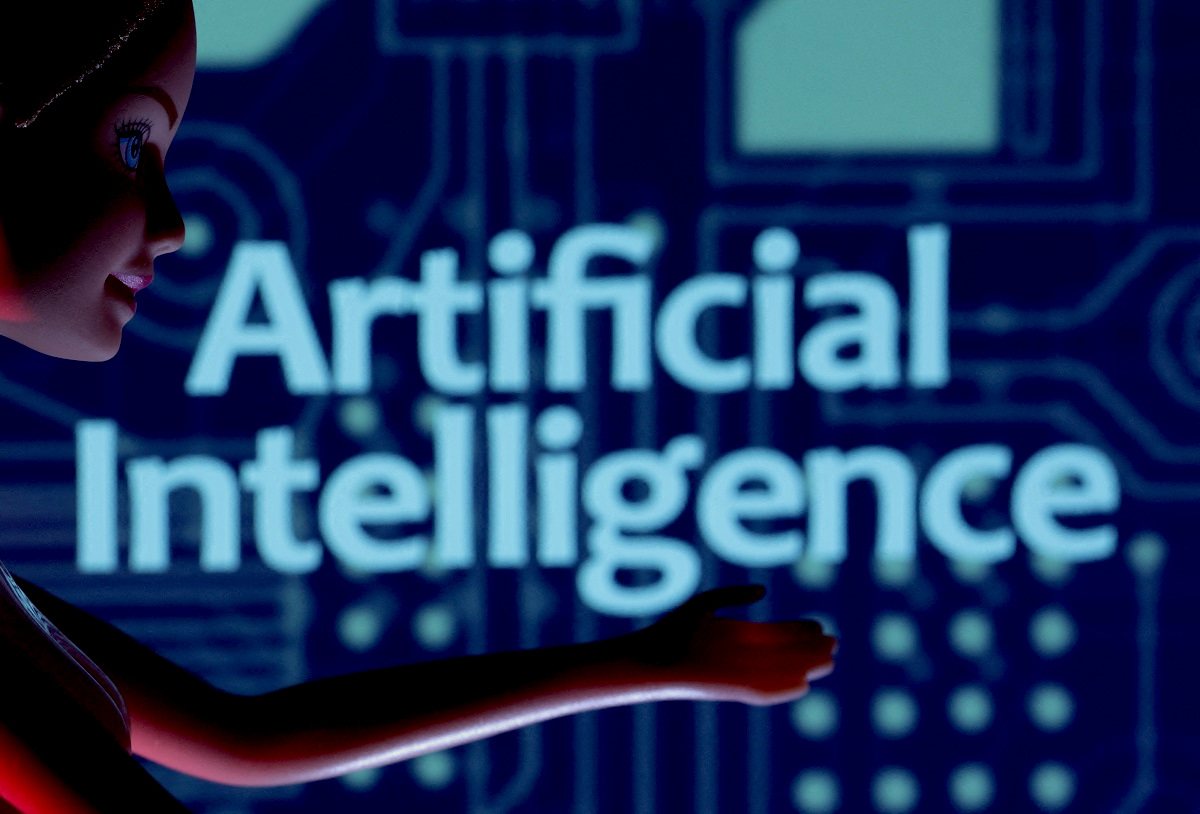Japan Lags in Regulating AI-Generated Child Porn as Loophole in Existing Law Gets Exploited

Artificial Intelligence words are seen in this illustration taken March 31, 2023.
2:00 JST, November 14, 2023
Japan is lagging behind in discussions on how to regulate the sexual imagery involving children easily created by generative artificial intelligence.
In October, the United Kingdom and the United States were among the countries that issued a joint statement together with AI developers.
“The increase in the creation and proliferation of AI-generated child sexual abuse material poses significant risks to fueling the normalization of offending behavior,” it says.
The Internet Watch Foundation, a U.K. non profit organization, is engaged in removing online child sexual abuse images and videos under the authorization of investigative authorities.
Its CEO, Susie Hargreaves, said AI has made it possible to easily produce realistic images of child sexual abuse. She stressed the need to take internationally concerted actions to tackle the problem.
Julie Inman Grant, Australia’s eSafety Commissioner who leads the government agency’s efforts for online safety, said: “It is abhorrent that predators from around the world would exploit these AI generated intimate images. This new era of generative AI must serve as a call to action for all countries to strengthen their laws and regulation around illegal and harmful content.”
In Japan, the law against child prostitution and child pornography prohibits the production and publication of sexual imagery or videos involving anyone under 18, and outlaws the possession of any such materials with the purpose of satisfying one’s sexual desire. The premise of the law, however, is that actual children are being used for the images and videos.
Computer-generated creations are only deemed illegal when they intentionally create images that resemble an existing child.
In the 1990s, Japan was internationally criticized as an exporter of child pornography. The latest revelation of a domestic website posting AI-generated sexual imagery of children doesn’t do Japan any favors.
“As long as the legal situation remains as it is, a massive number of AI-generated sexual images of children might be produced in Japan, and that could draw international criticism,” said Nagoya University Prof. Yasuhiro Miyaki, an expert on criminal law. “The existing law does not assume the mass production of sexual imagery indistinguishable from real-world images. It’s necessary to start relevant discussions as soon as possible.”
Top Articles in Society
-

Producer Behind Pop Group XG Arrested for Cocaine Possession
-

Man Infected with Measles Reportedly Dined at Restaurant in Tokyo Station
-

Man Infected with Measles May Have Come in Contact with Many People in Tokyo, Went to Store, Restaurant Around When Symptoms Emerged
-

Woman with Measles Visited Hospital in Tokyo Multiple Times Before Being Diagnosed with Disease
-

Australian Woman Dies After Mishap on Ski Lift in Nagano Prefecture
JN ACCESS RANKING
-

Producer Behind Pop Group XG Arrested for Cocaine Possession
-

Japan PM Takaichi’s Cabinet Resigns en Masse
-

Man Infected with Measles Reportedly Dined at Restaurant in Tokyo Station
-

Israeli Ambassador to Japan Speaks about Japan’s Role in the Reconstruction of Gaza
-

Videos Plagiarized, Reposted with False Subtitles Claiming ‘Ryukyu Belongs to China’; Anti-China False Information Also Posted in Japan























